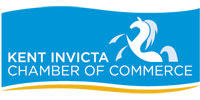The government has reintroduced the Statutory Sick Pay Rebate Scheme but new research suggests that businesses have already saved more than £300 million on sick pay because staff that work from home don't take as much time off.
As Brits are once again having to work from home if they can, new research has found that there has been a significant drop in the number of illness days taken by workers during the pandemic. A study by Hitachi Capital Invoice Finance based on data from the Office for National Statistics has found that absences fell by 5.3% during the pandemic to a record low of 1.8 days per year, saving the British economy £338 million annually.
British businesses spent approximately £6,985,492,500 on sickness pay in 2019; however, with the COVID-19 pandemic causing a large number of the population to work from home, this number fell to £6,647,062,500 in 2020. The female sickness absence rate fell 4.2% during the pandemic, while the male rate fell 6.25%.
In fact, COVID-19 was only the fourth biggest cause of sick days in the UK in the past two years. Minor illnesses and musculoskeletal issues were the top two reasons for taking a sick day in 2020.
Commenting on the research, John Atkinson, head of commercial business at Hitachi Capital Invoice Finance, said: "It's good news for many that the number of sick days Brits are taking are on the fall, with the increased number of people working from home a key factor. For small businesses and SMEs, sickness can be a huge issue, and our research suggests that many business owners can worry slightly less about this issue over the next 12 months."
Statutory Sick Pay Rebate Scheme
The government re-introduced the Statutory Sick Pay Rebate Scheme on 14 January 2022, allowing small businesses with fewer than 250 employees to get up to two weeks' Statutory Sick Pay (worth £192.70) for each employee who is off work because of COVID-19. The re-introduction was part of a new support package announced by chancellor Rishi Sunak before Christmas as a surge in Omicron cases was gripping the UK.
Any small firm wanting to take advantage of the Statutory Sick Pay Rebate Scheme must make a claim by 24 March 2022. The scheme applies to any sick days taken on or after 21 December 2021.
Written by Rachel Miller.
